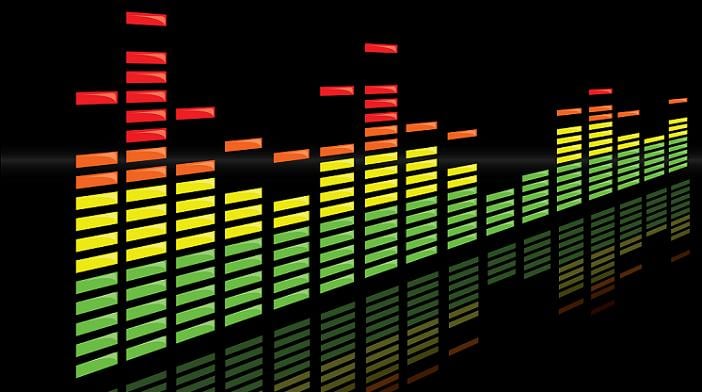 Ari Herstand. (Photo by Gadi Rouache)
Ari Herstand. (Photo by Gadi Rouache)
This is a guest post by Ari Herstand, author of How to Make It in the New Music Business and originally appeared on Ari’s Take.
A friend of mine with a good following in LA just told me how she showed up to her show last night only to find out that the venue had canceled it without her knowledge. Another touring artist I know discovered just two days before her LA stop that the promoter had a miscommunication with the venue and double booked the night with a wedding (after selling 200 advance tickets online).
I can't tell you how many horror stories I've heard (and experienced) where the venue and artist were on two completely separate pages about the show's details – and sometimes two completely separate calendars.
How do you prevent these catastrophes from happening? Advance the show!
What does advancing the show mean? It means calling or emailing your point person for the evening about a week prior to the show and confirming every detail for the night, like:
- load-in time and location
- soundcheck time
- parking
- door time
- show time
- openers
- compensation
- drink/food deal
- guest list spots
- lodging situation
- your day-of contact person’s cell phone number
- who the front of house sound engineer is for the evening
- who you should settle up with at the end of the night to get paid
- any other information
- VIP backstage hangs
- extra lights you're bringing in
- seated or standing show)
You can’t just assume everything is going to go smoothly. Actually, you should assume everything will be complete chaos unless you advance the show.
[Should You Take The Gig or Pass?]
A lot of time has passed since you booked the show. Maybe the talent buyer who booked you no longer works at the venue or the promoter you worked with had a falling out with the venue and he or she is moving your show to a different club. Maybe the club went out of business and no one told you. Maybe tickets haven’t been selling, so they added a few more local openers onto the bill which changes your set length and times.
It’s best that you work all of this out well before show day. Especially if you’re traveling from another city, you need to know if times have shifted well in advance to plan your travel days accordingly.
Maybe the talent buyer promised three hotel rooms but your point person the night of (the bar manager, perhaps) has no knowledge of that and nothing was reserved, all hotels are sold out, and now you must ask, sheepishly over the mic, if anyone has couches or floor space to lend you for the night.
Work out every detail in your advancement email or phone call
Once you have a show confirmed, you should send one final email that includes all of the necessary details. This acts like a contract. Most venues with capacities under 600 don't typically work with contracts, especially when booking directly with the artist. Even if they do work with contracts, it takes way too long to send one over, sign it, send it back and confirm everything.
Most venue talent buyers (bookers) won't take the time to do this. Just send them an email that looks something like the checklist below. Fill in all the information that you are certain of (what had been discussed in previous correspondences) and highlight the areas the venue needs to fill in.
Oh, and if you have been corresponding with the talent buyer via Facebook Messenger or text, make sure you finish the conversation and confirm the show only via email. You may need to be able to go back and reference part of the conversation and you definitely don't want to have to sift through Facebook, Instagram, text messages, or Twitter DMs to find the correspondence. All business should be done via email.
If he or she starts the conversation on Facebook, respond with a polite, "This sounds interesting. Can you email me?" If the booker refuses to work over email, it's a serious red flag and you should not pursue the show.
[9 Things to Consider When Choosing a Music Venue]
Attach a stage plot/tech rider and a promo photo with this email (so they don’t use an old grainy photo from four years ago they found on Google). Note that your band's promo bio is included at the end. In your advance call, make sure to go through every detail from this final confirmation email.
Your checklist for advancing the show
Make sure to include the following items in the final confirmation email to send to the talent buyer (booker) to confirm the booking. In your advance call, make sure to go through every detail from this email.
The basics
- Date:
- City:
- Venue:
- Bill Title:
- Ages:
- Cost:
- Capacity:
- Venue Website:
- Artist Websites:
- Advance Tickets Link:
- Onsale Date:
- Tickets available at box office?
- Box office phone #:
- Box office hours:
- Box office location:
- Guest List #:
- Door Time:
- Set Times/Length:
- Curfew:
The details
- Compensation:
- Drink/food provided:
- Number traveling in band/crew:
Day-of information
- Load-in time:
- Soundcheck time:
- Advance with: [name]
- Phone:
- Email:
- Venue day-of-contact phone number:
- Sound engineer day-of-contact phone number or email:
- Artist day-of-contact phone number:
Logistics
- Venue address:
- Load-in directions:
- Parking:
- Other instructions:
Promotional materials to include
- YouTube video to embed on venue website:
- Promo bio:
Next up:
- How to Advance a Show Like a Pro: Your 5-Step Checklist
- 8 Thing You're Forgetting to Do on Show Day
- 10 Smart Ways to Use the Downtime Between Soundcheck and Your Set
Ari Herstand is the author of How to Make It in the New Music Business, a Los Angeles-based singer/songwriter, and the creator of the music-biz advice blog, Ari’s Take. Follow him on Twitter: @aristake.

.jpg)






